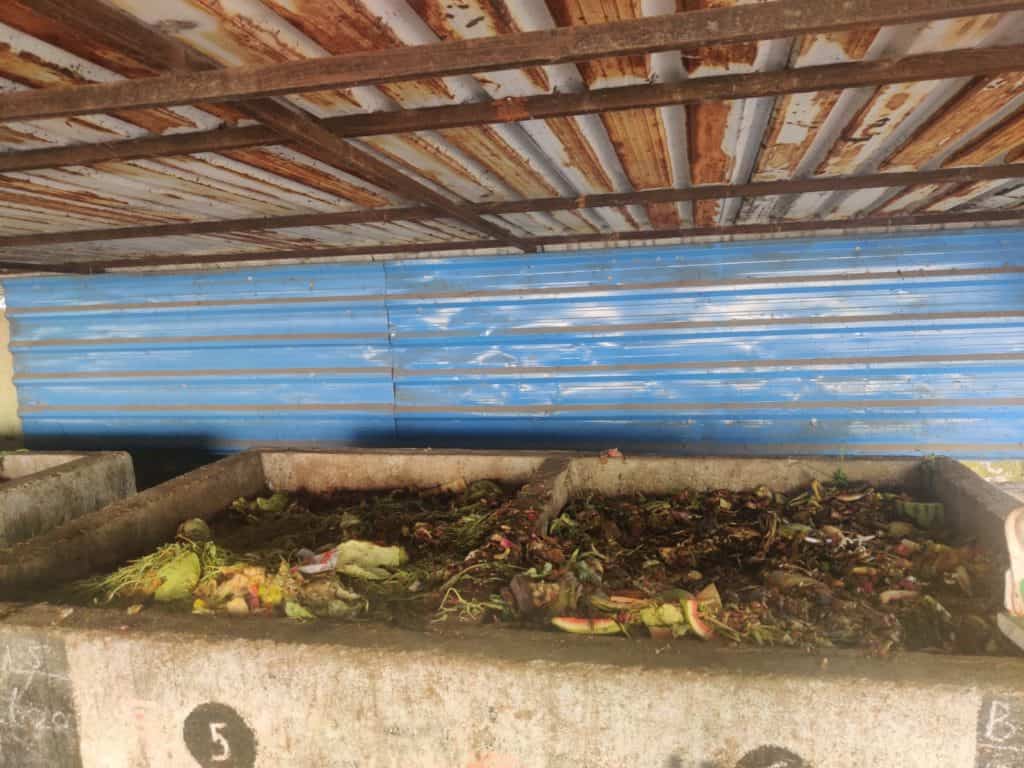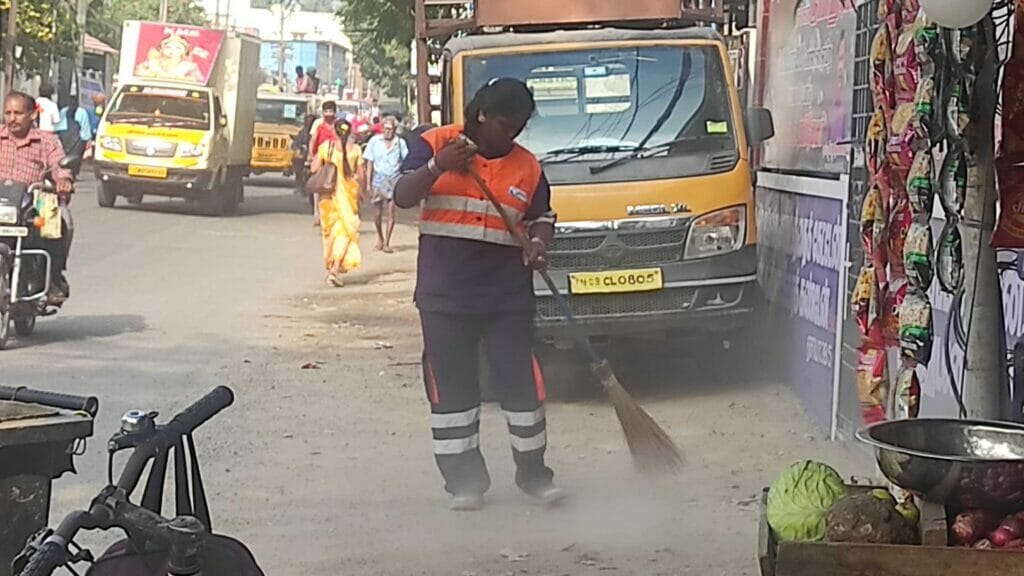Chennai has long grappled with the daunting challenges of managing its waste effectively. Over the years, the city has experienced substantial population growth, rapid urban development, and increased industrialisation. These factors have culminated in a significant upsurge in the volume of waste generated on a daily basis.
In response to these mounting challenges, Chennai initiated a transformative shift to confront challenges in its approaches to waste collection, sorting, and management. The introduction of a decentralised waste management system and the subsequent changes to the waste landscape in the city bear taking a closer look.
Decentralised waste management system in Chennai
The cornerstone of this transformation lies in the city’s shift from the conventional tipping fee model to a decentralised waste management approach. This new system incorporates several pivotal features, the most prominent being the use of Battery-Operated Vehicles (BOVs). These eco-friendly vehicles are now ubiquitous in residential and commercial areas, playing a key role in waste collection.
They advocate for source segregation, which emphasises the crucial need for waste categorization into three main types: wet waste, dry waste, and domestic hazardous waste. The streams of waste end up at Micro Composting Centres (MCCs) and Material Recovery Facilities (MRFs) and the other waste is incinerated or landfilled. The aim of the system is to ensure an overall reduction in the quantum of waste that reaches the landfills and Perungudi and Kodungaiyur.
Two concessionaires, Urbaser Sumeet and Ramky Enviro, have been collecting segregated waste in south and north Chennai respectively, alongside Greater Chennai Corporation which manages waste in three zones at present.
The decentralised system hinges on community participation and much of the challenge lies in spreading awareness on source segregation and ensuring that various streams of waste reach the right destination.
Read more: What will it take to make Chennai’s new waste management system a success?
Challenges in tackling unsegregated dumping
Unsegregated dumping of waste poses a daunting challenge in Chennai even with the introduction of the new system. The consequence of such indiscriminate waste disposal is the accumulation of a massive volume of waste across the city, in and around its bins.
Source segregation continues to be a piece of the puzzle that the city has had an issue with. Without the waste being divided into various categories at source, the burden falls on the conservancy workers who collect door-to-door to ensure that the waste is segregated. Despite their best efforts, the waste thus segregated may not be suitable for secondary processing.
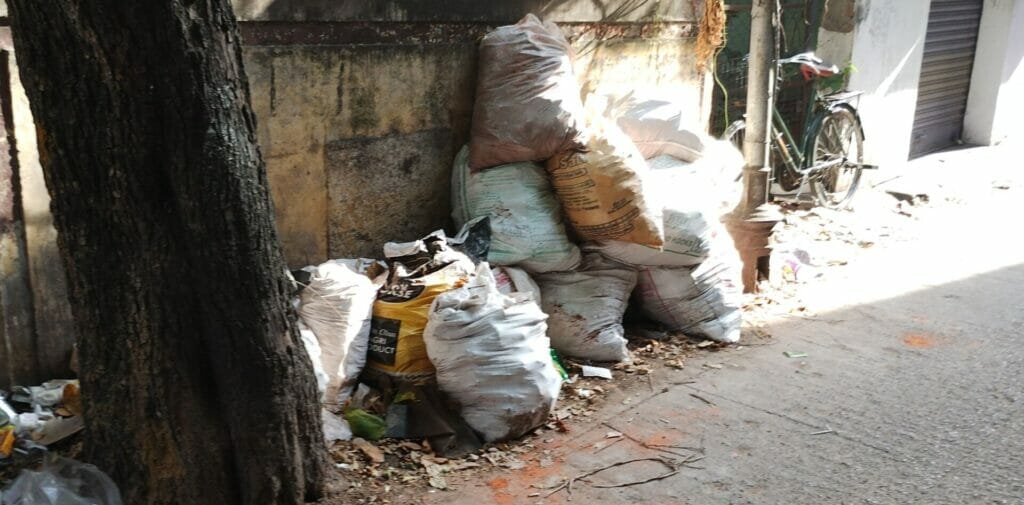
Poor source segregation has a direct consequence on the functioning of the various Micro Composting Centres (MCCs) and Material Recovery Facilities (MRFs). The segregated wet waste is to be sent to the MCCs for composting and generation of manure while the segregated dry waste is to be sent to the MRFs for secondary segregation and recycling.
But with poor source segregation, Citizen Matters found that Chennai’s MCCs have struggled to function effectively. While a few MCCs managed by NGOs were able to generate quality manure, many composing centres were unable to deal with the contaminated wet waste that was dumped in them. Similarly, MRFs suffered from poor quality of dry waste as a result of improper source segregation.
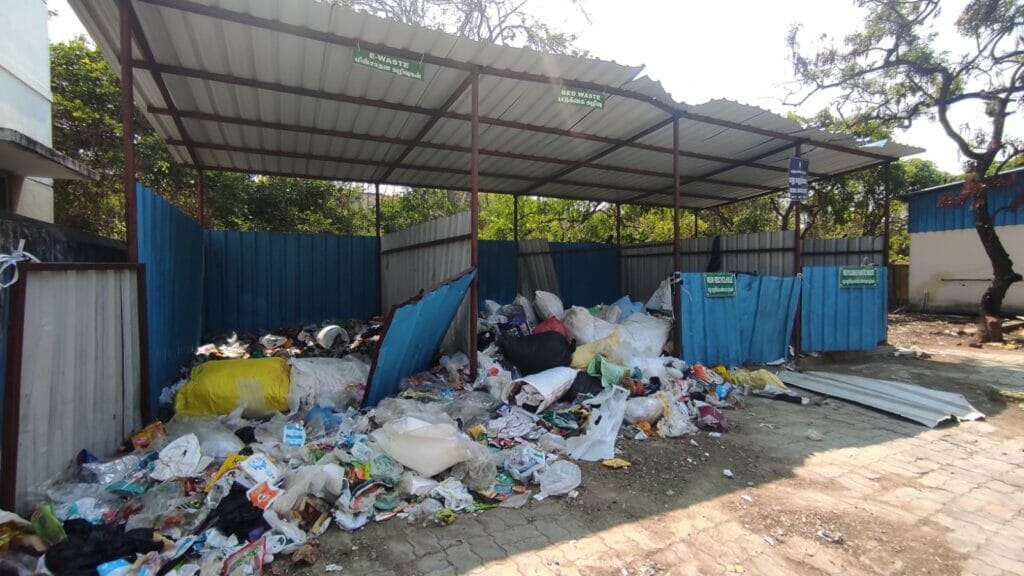
Another issue in Chennai has been the failure of commercial and residential bulk waste generators to manage their own waste. Despite the waste management laws making them responsible for in-situ processing or management through vendors, very few entities have taken this responsibility to heart.
Issues with E-Waste
Electronic waste encompasses a wide array of discarded electronic and electrical equipment, many of which contain hazardous materials such as mercury and lead.
Chennai’s E-waste management leaves a lot to be desired with the absence of a framework for Extended Producer Responsibility (EPR) as mentioned in the E-waste management rules prescribed by the Ministry of Environment.
Residents in Chennai have the option to deposit their E-waste in the domestic hazardous waste collection centres that are managed by the Greater Chennai Corporation (GCC). The E-waste from here is taken over for recycling by vendors authorised by the Tamil Nadu Pollution Control Board (TNPCB). While the system exists on paper, very few residents are aware of the existence of this option to dispose of their E-waste.
As a consequence, much of the E-waste generated in Chennai is recycled by the informal sector such as kabadiwalas. The E-waste is then broken up and sold for scrap with the valuable items removed and the rest landfilled.
The absence of a proper system to ensure that hazardous materials do not end up landfilled has been a glaring gap in the waste management system in Chennai.
Management of construction and demolition waste
Chennai confronts a unique set of challenges in managing construction and demolition (C&D) waste. Chief among these is the recurring issue of rule violations, with improper disposal of C&D waste remaining widespread, despite the stipulated fines delineated in the Solid Waste Management (SWM) by-laws.
In an effort to tackle these challenges, C&D waste management in Chennai has been structured such that private contractors oversee the process in specific zones, while the Greater Chennai Corporation (GCC) manages the rest. SWM rules mandate that generators of C&D waste must have a disposal plan in place before commencing their work, which necessitates proper disposal arrangements either at designated sites or through authorised contractors.
Once collected, C&D waste is subjected to processing and segregation, with fine aggregates being repurposed for plastering and coarse aggregates for use in concrete. Additionally, bricks and steel rods recovered from C&D waste find new life through sale.
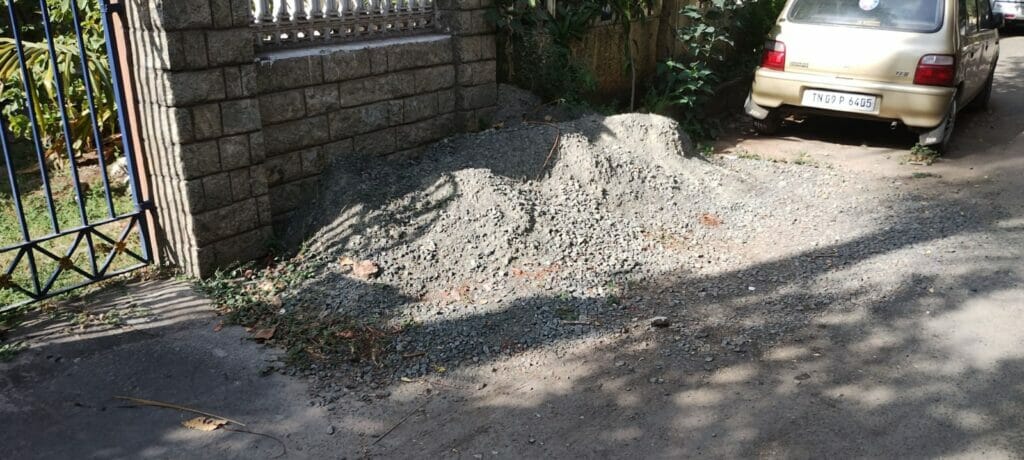
Community concerns have also come to the forefront, with civic activists and residents expressing apprehensions about the improper disposal of C&D waste. This neglect results in several issues, including environmental problems, clogged drains, safety risks, and flooding during periods of heavy rainfall. The role of builders and realtors in ensuring proper disposal or reuse of C&D waste has proven pivotal, as it helps diminish the need for illegal dumping.
Officials from the GCC have responded to the challenge by identifying hotspots for illegal C&D waste dumping and using CCTV cameras for monitoring and enforcement. Violators face substantial fines and warnings, reinforcing the significance of proper waste management practices.
Read more: Who keeps your streets clean? The invisible women of singara Chennai
Issues faced by conservancy workers
The valiant conservancy workers responsible for maintaining the cleanliness of the city confront a multitude of formidable challenges. These individuals, often working diligently behind the scenes, endure less-than-ideal working conditions. Inadequate pay, long commutes, and issues like the lack of safety equipment and access to public toilets are just a few of the daily challenges they face.
Inequity is another pressing concern, with many workers experiencing caste-based discrimination and ill-treatment. Regrettably, reports of sexual harassment have emerged as a recurring issue among conservancy workers, who may often fear retaliation if they report such incidents. Moreover, the ongoing privatisation of certain zones may potentially lead to job losses among these workers.
The crucial role played by workers’ unions in advocating for and safeguarding the rights of conservancy workers cannot be understated. These unions are instrumental in assisting workers in filing complaints and addressing their grievances, although they, too, encounter challenges in their efforts.
Chennai’s endeavours to transform its waste management practices epitomise a broader global shift towards sustainability and the efficient use of resources. The transition to decentralised waste management, separate approaches to tackling e-waste, measures to address C&D waste challenges, and concerns faced by conservancy workers collectively underscore the city’s responsibility in addressing the intersections of the issue.
A transformation in waste management is intrinsically linked to collaborative efforts among the government, private sector, communities, and workers’ unions, which are key to realising these shared goals.
